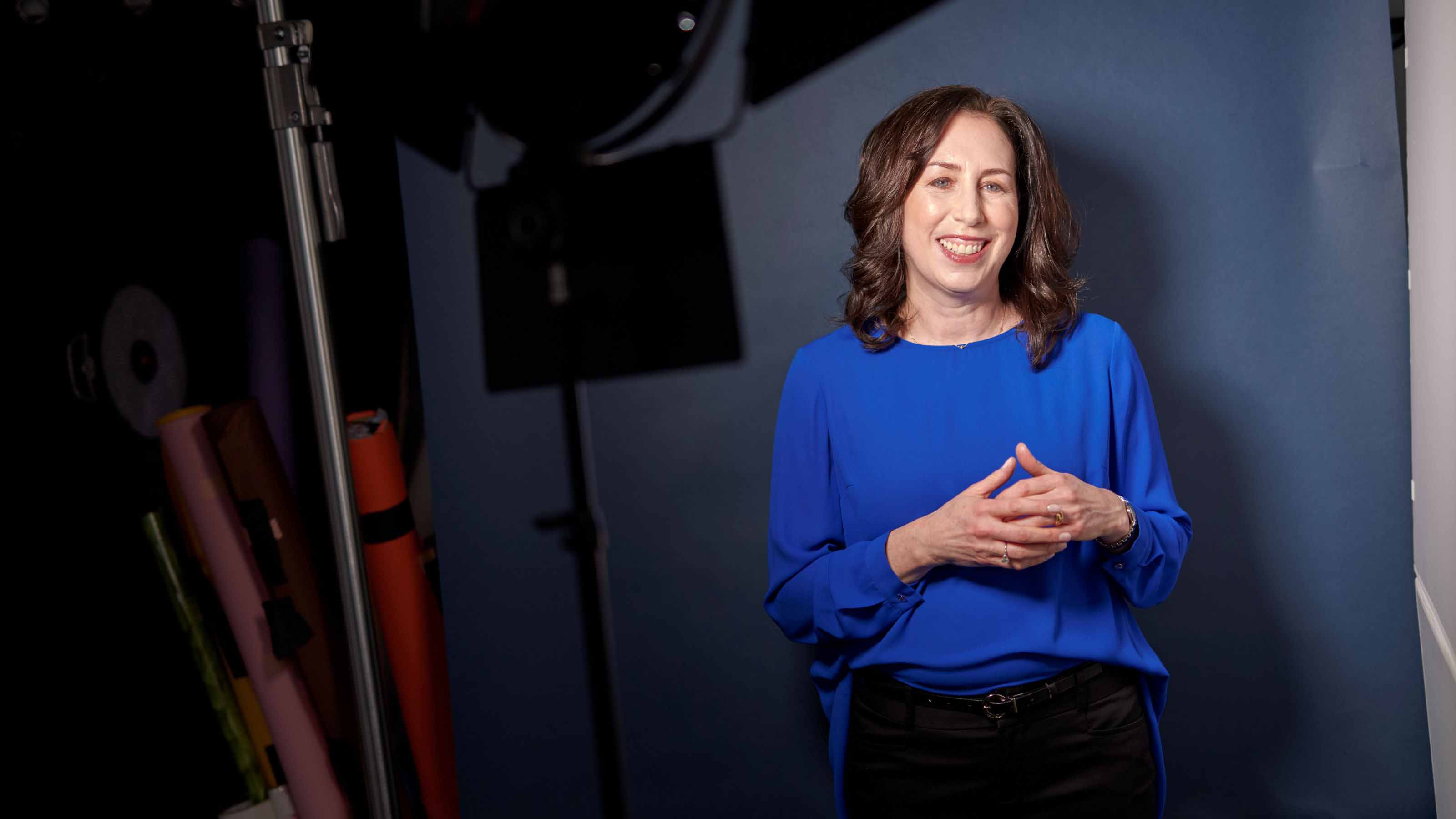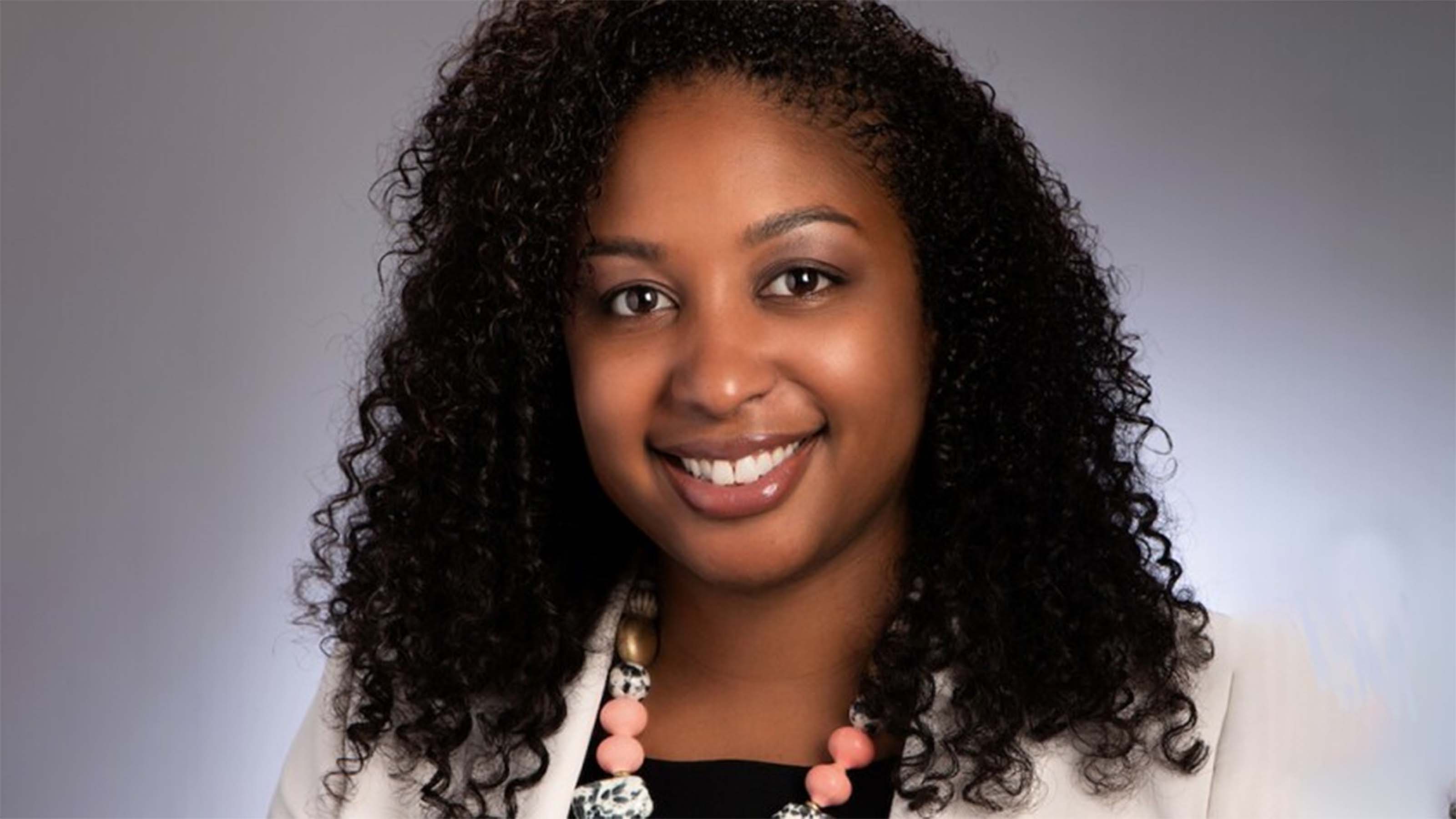Protecting Your Digital Assets
Jamie Hopkins, director of retirement research at Carson Group, joins our hosts Sandy Block and Ryan Ermey to explain how to protect your digital assets. Also, the pair offers tips on how to prevent your smart home devices from getting hacked.

Profit and prosper with the best of Kiplinger's advice on investing, taxes, retirement, personal finance and much more. Delivered daily. Enter your email in the box and click Sign Me Up.
You are now subscribed
Your newsletter sign-up was successful
Want to add more newsletters?

Delivered daily
Kiplinger Today
Profit and prosper with the best of Kiplinger's advice on investing, taxes, retirement, personal finance and much more delivered daily. Smart money moves start here.

Sent five days a week
Kiplinger A Step Ahead
Get practical help to make better financial decisions in your everyday life, from spending to savings on top deals.

Delivered daily
Kiplinger Closing Bell
Get today's biggest financial and investing headlines delivered to your inbox every day the U.S. stock market is open.

Sent twice a week
Kiplinger Adviser Intel
Financial pros across the country share best practices and fresh tactics to preserve and grow your wealth.

Delivered weekly
Kiplinger Tax Tips
Trim your federal and state tax bills with practical tax-planning and tax-cutting strategies.

Sent twice a week
Kiplinger Retirement Tips
Your twice-a-week guide to planning and enjoying a financially secure and richly rewarding retirement

Sent bimonthly.
Kiplinger Adviser Angle
Insights for advisers, wealth managers and other financial professionals.

Sent twice a week
Kiplinger Investing Weekly
Your twice-a-week roundup of promising stocks, funds, companies and industries you should consider, ones you should avoid, and why.

Sent weekly for six weeks
Kiplinger Invest for Retirement
Your step-by-step six-part series on how to invest for retirement, from devising a successful strategy to exactly which investments to choose.
Ryan Ermey: Are your digital assets safe? And, hey, what are your digital assets, anyway? Retirement planning expert and finance professor Jamie Hopkins joins the show to tell you all about it in our main segment. On today's show, Sandy and I tell you how to protect your home's internet-connected devices from hackers before delving into tuition insurance and February discounts in a new edition of Deal or No Deal. That's all ahead on this episode of Your Money's Worth. Stick around.
- Episode Length: 00:28:28
- Links and resources mentioned in this episode
- SUBSCRIBE: Apple Google Play Spotify Overcast RSS
Ryan Ermey: Welcome to Your Money's Worth. I'm Kiplinger's associate editor Ryan Ermey, joined as always by senior editor Sandy Block. Sandy, how connected is your house or how smart is your house?
Sandy Block: Oh, my house is old and dumb. I actually got an Alexa, a Kindle with Alexa, I won it in our company raffle, but I haven't fired it up yet. So, no, my house is not smart. We don't have a Ring. But everyone I know, everyone I know, has Alexa right now.
From just $107.88 $24.99 for Kiplinger Personal Finance
Become a smarter, better informed investor. Subscribe from just $107.88 $24.99, plus get up to 4 Special Issues

Sign up for Kiplinger’s Free Newsletters
Profit and prosper with the best of expert advice on investing, taxes, retirement, personal finance and more - straight to your e-mail.
Profit and prosper with the best of expert advice - straight to your e-mail.
Ryan Ermey: Yeah, I think we have Google Homes strewn throughout the house. They're all my roommate's, which means that they're mostly ours -- except if I'm listening to music chopping onions in the kitchen and he's coming home on the bus. All my music will cut off, because it's not my music, it's his music and another device would like to use this Spotify account.
Sandy Block: I hate it when that happens.
Ryan Ermey: But it brings up something interesting, which is a piece that our colleague Lisa Gerstner has in the March issue of Kiplinger's. It's an interview with Theresa Payton, who is a major kind of cybersecurity guru.
Sandy Block: Worked in the White House.
Ryan Ermey: A super duper impressive resume. The interview brought up something that I hadn't even thought of, which is that all of these internet-connected devices in your home might be vulnerable to hackers.
Sandy Block: Right, and there have been some really disturbing stories about people hacking into these devices and talking to their kids or something like that, taunting people. I don't know what they're saying. It's like are you really going to wear that or what? But I mean, the idea of some disembodied voice coming through your Google Home or your Alexa is really disturbing. When you think about it, even like a Ring on your front door or something like that, think of all the information this has about you. Alexa has all, you're moving around, you're talking, you're saying where you're going on vacation, maybe giving out your Social Security number, who knows?
Ryan Ermey: Who knows?
Sandy Block: I mean, there's a lot of information that someone were able to hack into one of these devices could get.
Ryan Ermey: Yeah. And I think it's people's natural instinct to think, "Well, who could want my information?" I live such a regular old nine-to-five life. But you don't know who you could be connected with. Theresa makes the point that these kinds of devices could even be used to kind of map out your house if someone is considering robbing it.
Ryan Ermey: So how do you go about keeping yourself safe? One of the strategies that she brings up is to do your homework and ask questions when you're considering buying one of these things. Does new security software automatically download onto your device? Can you set up some sort of two-factor authentication? That does bring up the other thing about these devices that makes them somewhat vulnerable is that it's all about how easy it is to use them. We don't have complex security protocols with your Alexa or with your Google Home, because it would suck. You just want them to be able to say, "Hey, Alexa, play the Bee Gees," and not have to do a several step password process.
Sandy Block: Right. Now Theresa does point out that the big providers, Amazon and Google, typically do have these features built into the devices. But if you want to double check, she suggests going to Mozilla's Privacy Not Included website. We'll put the link to that on our website.
Sandy Block: The other thing you want to do, even with the big name ones, is periodically make sure that they are updating. Just like your computer has security patches, these devices may have security patches. If you don't know whether your device is automatically retrieving security patches, she says just periodically turn them off, unplug your router and plug it back in, and that will automatically download these things. So I think these are basic protections.
Sandy Block: The other thing she says, and someone with her background... I think her own habits are good to imitate, is if her family is discussing something very sensitive, like where we're going to go on vacation, or I don't know, something like that, they unplug their stuff. Don't give it the information if you don't want it to have it.
Ryan Ermey: Yeah, that reminds me. I read that night and I thought of like HAL 9000, you know?
Sandy Block: When you go outside the spaceship and talk in whispers?
Ryan Ermey: "I'm sorry, Dave. I'm afraid I can't do that." It gets a little like, "Oh, Alexa is listening, she is going to lock your doors." But seriously, it makes sense.
Ryan Ermey: The last piece of advice is to make sure that your WiFi isn't visible to other people in your vicinity. As entertaining as I always think it is when people have kind of funny or clever names, evidently one of my neighbors, their name is Murphy, so their WiFi is called Murphy's law, which I think is quite funny. Anything that can go wrong.
Sandy Block: But it's easy to guess.
Ryan Ermey: I don't know what the password is. Yeah. So it's just about taking precautions. It can make you feel a little, and I think Theresa even says this, it can make you feel a little bit sort of tinfoil hatty. But make sure you protect yourself, especially if you have a lot of these devices and you just aren't considering these sort of things.
Ryan Ermey: Coming up, your digital assets may be worth more and trickier to protect than you think. Stay tuned for our interview with Jamie Hopkins, next.
Ryan Ermey: We are back and we're here with Jamie Hopkins. Now, he's the director of retirement research at Carson Group. He's a CFP, a professor at Creighton University and he is heavily quoted in a piece that ran on Kiplinger.com about protecting digital assets, which is what we're going to get into today.
Ryan Ermey: Jamie, thank you so much for coming on.
Jamie Hopkins: Yeah, absolutely. Thanks for having me on.
Ryan Ermey: So in that piece, which we're going to put up in the show notes for the podcast, we say that the average person has about $55,000 in digital assets. Now when we are referring to that, we're not exactly talking about money in an online bank account, per se. What does digital assets actually mean as a term?
Jamie Hopkins: Yeah, so digital assets when we refer to those are really anything that's kind of stored electronically. So we're thinking about your social media sites, your contacts online, your email, your photos. Sometimes we are actually truly talking about things that are closer to money, right? A Bitcoin or cryptocurrency style asset. Traditionally that's what immediately came to people's mind was, do I have digital assets? Well, did I not have any type of online currency, then I didn't have digital assets. Lately I think that's started to break down a little bit, and more and more people are recognizing that they actually have a very large digital footprint.
Sandy Block: So Jamie, why is it important to protect these assets that do have value, and what are the common mistakes that people make?
Jamie Hopkins: Yeah, the first common mistake that people make is just not realizing that they have these assets and need to think about them as assets. A lot of people just kind of go about their day. They set up accounts, they click on their phone, they set up a new account, set up a new password and just don't really think about what happens if I die, if I end up in a coma, become incapacitated at some point. Can my heirs, can my loved one's access these assets? Can they take them down when needed? So part of it is just as much about protecting what you have online, protecting your own image and then passing wealth to others.
Jamie Hopkins: Sometimes we also see the issue that these can actually become a kind of targets for those online that are trying to engage in some type of criminal activity or theft that they're trying to hack your accounts. So making sure that we're managing the passwords correctly, and when one person passes away, or again, becomes incapacitated, that the heirs... your loved ones, your surviving spouse... that they can actually get in and manage these accounts.
Jamie Hopkins: So those are really the biggest things, right? We just have to be aware of them. That's step one. Then we do have to think about them a little bit differently. The laws around these are a little bit different than we might initially expect and that'll be something that shocks a lot of people.
Ryan Ermey: So honing in on something that you talked about there. How should people go about protecting and keeping track of all of their passwords and accounts while they're alive, and then how do you set it up so that your loved ones can access those things after you've passed away?
Jamie Hopkins: So let's start with that first piece, which is just how do we track all of these? That can actually be a huge burden today. If you start looking at people in their twenties and thirties, they might have easily over a hundred different accounts. A couple of years ago, there were some just kind of data surveys out there. I think the average person was in about 60 to 70 different online accounts, and that number just continues to grow. Younger individuals tend to have more.
Jamie Hopkins: So just figuring out where do I have all of these different accounts, from social media to work to websites to blogs, right? All of those all across the internet, right? Our online banking, that's important. We actually have to track any of those accounts. Typically what people do today, and is still probably one of the best ways to do it, is to keep something almost like an Excel file, and you actually want to put the location, so the website, usernames, passwords, whatever your ID to access those accounts are. We've got to track that in some fashion. So that's important.
Jamie Hopkins: There are some online websites, there's even some apps you can get on your phone now, that help with that process. Again, anytime you're going to use one of those, you just have to understand, is that a trusted service that I want to use? We also still have people that write down their computer and all their passwords on sticky notes and put it on their desk -- and it's a way to do it, it's probably not the most sophisticated.
Jamie Hopkins: The one thing I do push against people when we're talking about protecting and tracking this is don't save them in things like your email or on your iPhone in a note section. If we're putting them behind an online access point and somebody doesn't have the ability to get into the email or into that note section, they actually might not be able to access any of them. So it is important to kind of think about that piece when doing this.
Jamie Hopkins: The second one is we're seeing more and more things get hacked online, right? Most people today are just kind of that mindset, "Hey, we really believe no matter where information is it might get hacked at some point." So think about that. I usually recommend on an external hard drive or flash drive if you're going to save that, so it's not as easily hacked through WiFi or through your computer. So protect those assets, right? Those usernames, passwords.
Jamie Hopkins: So tracking is step one. I know that was a long answer and I do want to hit part two. Part two is how do we actually pass them to our loved ones and our heirs? How do we make sure that people have access to these assets? That's very important. What actually can happen to people is they don't read what we call the term of service agreement, that TOSA. That's that thing that popped up on the screen and you scroll to the bottom of as fast as humanly possible and hit I accept.
Ryan Ermey: Yep.
Jamie Hopkins: And you agree to all of these terms and conditions. People don't read those. Let's be honest, nobody reads those. We're just trying to set up accounts and move forward. Inside of there, what we often agree to is language that says our online account is a non-transferable asset. That means when we die, when we become incapacitated, no matter what, we can not leave it to anyone, we cannot sell it to anyone. So we can't leave, according to that contract, most of our online accounts to any of our kids, our spouses, et cetera. That's very important.
Jamie Hopkins: Really no amount of planning can change that in a lot of situations because that's a contract, it's illegally binding contract. We can't plan and kind of undo a contract. But we'll see the government gave us some rules under something called RUFADAA, the Revised Uniform Fiduciary Access to Digital Asset Act. I know, it just rolls right off the tongue. It's the easiest thing. I'm always happy when I get it right the first time.
Jamie Hopkins: I'll tell you what changed there and almost every state's now adopted that. But that's opened up new areas for planning here to put our family, our loved ones, and our assets in a better place.
Sandy Block: So Jamie, what about social media sites? I mean, I don't really think I need to pass on my Facebook account to other people, but I get notices, and I'm sure this happens to everybody else all the time or Facebook memories from people who are gone. It's kind of troubling to think that there's still an account out there in their name. Can people arrange, and is it a good idea to arrange in advance, to have these accounts that maybe don't have monetary value but I guess could be hacked or used by identity thieves or something, to have them come down when you die?
Jamie Hopkins: Yeah, so things like Facebook, and it's a great example, I mean that's a big social media website, I've had the same things. I've had friends pass away and their account just sits there and it'll tell you that it's their birthday and you see people that didn't know that they passed away, right? Happy birthday and things like that, or it's just kind of uncomfortable, too. Even if it's not presenting a risk, even if the asset wasn't valuable to the next person, it's created kind of social conflict by leaving it there.
Jamie Hopkins: Facebook itself actually has a moralization process. You could actually tell your executor or your heirs to go in and memorialize your account. So it'll take away some of those things, like add this person as a friend, and it actually kind of locks down the account to some degree.
Jamie Hopkins: Google has a similar feature to called an inactivity, kind of almost like a beneficiary. So essentially if you're inactive for a very long time on Google, Google will actually email a separate email address your information and ability to go into the account and manage it.
Jamie Hopkins: So there's certain things like that that are out there today to kind of help with that. Facebook's was one of the first that they actually had that memorialization feature. So you do need to show proof of death, and you have to kind of do a little bit of pre-planning, but that is still available today.
Jamie Hopkins: Again, that's not about the money, it's not about, in a lot of cases, theft, it's about really the image and just kind of being respectful of somebody who's passed away. Because those digital footprints, they could last forever, right? They don't go away naturally at some point.
Ryan Ermey: Right. It makes me wonder whether it would be prudent for someone to include this in discussions with their estate lawyer?
Jamie Hopkins: Absolutely. So that's one of the things I kind of dropped the hint that we were going to get back to it, and that was that new language that's being passed at the state level. I believe it's 47 or 48 states now, so almost across the country, have some version of RUFADAA on the books.
Jamie Hopkins: What that law says is that you can give your fiduciary, so your executor or another person you pick or a trustee, the right to access your online accounts for the purposes of managing them, wrapping them up and shutting it down. So while you can't change the ownership provisions, that was a contract provision in that term of service, we can now grant people the ability to access them through our state planning process, our wills, and our trusts, to essentially manage these assets after our death or an incapacity, right? We end up being sick, and our spouse has that ability to go in and manage them.
Jamie Hopkins: That's very important, right? Very important. Because if we read that term of service agreement, again, most of them don't provide access to anyone. So if we don't do that legally in our documents, we might not have access to these, our surviving spouse might not have access to them, and that's going to cause problems from an estate planning perspective.
Jamie Hopkins: So most really good attorneys for about the last two or three years have been using updated trust documents and updated wills with specific digital asset language in them. I say this all the time, if you don't have that updated language in there, your plan has a hole in it today, right? It absolutely, if you have online assets, your wills and your trust need to be updated to the new law that's been passed just in the last three years.
Jamie Hopkins: So a lot of people think, "Hey, I've got a new trust or will, it's only five years old." It is actually out of date right now. We actually should be talking to the estate planning attorney and just even having that basic access language put into our documents.
Ryan Ermey: Well, fascinating stuff, Jamie. We'll be sure to link the story you're quoted in as well as all of the fantastic work you've done on Kiplinger.com in the show notes, and thank you so much again for coming on.
Jamie Hopkins: Yep, absolutely. Thanks for having me on about this important topic.
Ryan Ermey: You may not need tuition insurance, but we bet you could use free pancakes and frozen yogurt. Deal or No Deal is next.
Ryan Ermey: We are back, and before we go, another round of Deal or No Deal. Sandy, what you got?
Sandy Block: I've got... mine is pretty much not a deal except in some very limited circumstances and it's called tuition insurance.
Ryan Ermey: Okay.
Sandy Block: I think we're going to write about this before too much longer. We haven't covered it for a while. But we're coming up on the time of year when people decide where they're going to college, and their parents are looking at the bills they have to pay, and oftentimes it can be substantial. There are these companies that basically will say, well, if the student doesn't finish, for a few hundred dollars a year, we will refund the balance of your tuition.
Sandy Block: For someone who's shelling out like $20,000, that might sound pretty attractive. But here's the problem. Lots of students drop out of school for all kinds of reasons, but most of the tuition insurance is very limited as to what it will refund. Pretty much, unless your child has a major medical emergency, a doctor's appointment, a doctor's note, can prove that the child left for health related reasons, they're not going to pay.
Ryan Ermey: Oh, so if you just flame out...
Sandy Block: Yeah, junior just partied through the first semester and came home. Sorry, no tuition insurance for you. On a more serious note, you hear an awful lot about young people today struggling with depression and anxiety and things like that, but even in a mental health situation, some of these policies will only reimburse you if the child actually spends a night or two in the hospital. So if the child just drops out because he's seriously depressed and even diagnosed, that may not be enough to get reimbursed.
Sandy Block: So anyone who's considering this really needs to scrutinize the policy. There might be some instances where you have some concerns about a child's health that might justify it, but I think...
Ryan Ermey: Right, if they have like a condition that you know that it might be difficult for them to make it through a semester. Does it cover a sort of pre-existing thing?
Sandy Block: Well, that's part of the problem. If the child has a preexisting condition, it may not cover it anyway.
Ryan Ermey: Oh my God.
Sandy Block: So yeah, there may be some limited situations. The other thing I would say is check out the school's own refund policy. Many schools will refund your tuition if the child flames out in the first three weeks or a month. If the child makes it almost to the end of the semester, you may be able to take incompletes and pick it up later. So there are other ways around this problem of a student maybe not finishing. A lot of kids drop out and go back. They get incompletes or they make it up.
Sandy Block: So again, there may be some instances in which this applies, but I think for the majority of people it is probably money that can be better spent.
Sandy Block: So what you got?
Ryan Ermey: I have a small roundup here. We are going to do Valentine's deals closer to the actual holiday for last minute planners like me. In the meantime, just sort of looking out into February, there are some deals to be had that are kind of unique to the month.
Ryan Ermey: One, this podcast comes out after the Super Bowl, hopefully after I've won all kinds of money on my box pool. I don't think I've ever won one of those things, by the way.
Sandy Block: It's time. You're due.
Ryan Ermey: I'm due. I'm making spinach and artichoke dip or whatever, so I need to get my money's worth.
Ryan Ermey: Anyway, classically one of the best times to get a TV is right around the beginning of February, tied to the Super Bowl. These deals are kind of linger around the first week or so of February. They're not going to be quite as good as Black Friday deals, but you might see about 50% TV deals. This is all sourced from our friends at Deal News, but you might be able to get TVs bundled with a multi-hundred dollar gift card.
Sandy Block: Gift card, yeah, yeah.
Ryan Ermey: So be on the lookout for these deals. They talk about LGTVs. So again, LGTV might be bundled with a $400 Dell gift card. So you might have to be a little bit strategic about it, but it's a good time in the beginning of February to consider buying a new TV if you missed out on Black Friday.
Ryan Ermey: National Frozen Yogurt Day, I know you have that on your calendar.
Sandy Block: I live for it. I live for it.
Ryan Ermey: Well, it's February 6th, as you well know. But there are freebies. Yogurtland will offer a free five ounce cup of frozen yogurt or ice cream from 4 to 7:00 PM. TCBY, which stands for? The country's best yogurt, Sandy.
Sandy Block: I can't believe it's yogurt, I thought.
Ryan Ermey: Up to 6-ounces of frozen yogurt for free.
Sandy Block: Oh, okay.
Ryan Ermey: Menchie's is doing buy one get one free on February 6th, 3 to 7:00 p.m. So check it out. If you have some kind of other frozen yogurt brand in your town, check it out, and they might be offering some kind of frozen yogurt deal.
Ryan Ermey: President's Day sales are worth keeping your eye out for.
Sandy Block: Coming up.
Ryan Ermey: It falls on February 17th this year. They'll fall over the long weekends, so plan on shopping during that time. You can see up to 70% off on various computers, Dell, HP, Lenovo. Also classically mattresses up to 60% off, home goods up to 80% off, large appliances up to 35%.
Sandy Block: Get your washing machine.
Ryan Ermey: Absolutely. The last thing to keep an eye out for, and this is one that I think a lot of people already know about, is the free pancake day. National Pancake Day, February 25th. IHOP, very prominently, will be offering all guests one free short stack of buttermilk pancakes. The celebration, it says here, starts at 7:00 a.m.
Sandy Block: You're making me hungry, man.
Ryan Ermey: It's not a celebration for the waitstaff, I'll tell you that.
Sandy Block: No. Or those guys that have to make those short stacks.
Ryan Ermey: Yeah. Oh, and diners can also enter contests to win free pancakes for life, as well as other products. I remember one year I went with a buddy of mine. We went to the Denny's out on Benning Road here in Washington, D.C., because they were doing unlimited pancakes if you bought a Grand Slam, and do you know how many Denny's pancakes, at about what number pancake they start to just taste sour and bad?
Sandy Block: I would think like five.
Ryan Ermey: No, it's seven...
Sandy Block: But if you spread out your unlimited pancakes over a lifetime.
Ryan Ermey: Well, yeah, that's true.
Sandy Block: Like every Saturday.
Ryan Ermey: You shouldn't just have them every meal. They actually just ship them to your house already cooked.
Ryan Ermey: So yeah, keep an eye out for the deals and don't overindulge on the pancakes, folks.
Ryan Ermey: That's it for this episode of Your Money's Worth. For show notes and more great Kiplinger content on the topics we discussed on today's show, visit Kiplinger.com/links/podcasts. You can stay connected with us on Twitter, Facebook or by emailing us at podcast@kiplinger.com.
Ryan Ermey: If you like the show, please remember to rate, review, and subscribe to Your Money's Worth wherever you get your podcasts. Thanks for listening.
TAKE OUR QUIZ: Bargain or Trap?
Links and resources mentioned in this episode
Profit and prosper with the best of Kiplinger's advice on investing, taxes, retirement, personal finance and much more. Delivered daily. Enter your email in the box and click Sign Me Up.

Block joined Kiplinger in June 2012 from USA Today, where she was a reporter and personal finance columnist for more than 15 years. Prior to that, she worked for the Akron Beacon-Journal and Dow Jones Newswires. In 1993, she was a Knight-Bagehot fellow in economics and business journalism at the Columbia University Graduate School of Journalism. She has a BA in communications from Bethany College in Bethany, W.Va.
-
 How Much It Costs to Host a Super Bowl Party in 2026
How Much It Costs to Host a Super Bowl Party in 2026Hosting a Super Bowl party in 2026 could cost you. Here's a breakdown of food, drink and entertainment costs — plus ways to save.
-
 3 Reasons to Use a 5-Year CD As You Approach Retirement
3 Reasons to Use a 5-Year CD As You Approach RetirementA five-year CD can help you reach other milestones as you approach retirement.
-
 Your Adult Kids Are Doing Fine. Is It Time To Spend Some of Their Inheritance?
Your Adult Kids Are Doing Fine. Is It Time To Spend Some of Their Inheritance?If your kids are successful, do they need an inheritance? Ask yourself these four questions before passing down another dollar.
-
 PODCAST: Tax Breaks for College Finance with Kalman Chany
PODCAST: Tax Breaks for College Finance with Kalman ChanyPaying for College Paying for (ever-pricier) college is a challenge that this consultant meets head on with highly specific guidance.
-
 PODCAST: Car-Buying in an Inflated Market with Jenni Newman
PODCAST: Car-Buying in an Inflated Market with Jenni NewmanBuying & Leasing a Car With cars both scarce and expensive these days, what to do if you want – or need – a new ride? Car-buying strategist Jenni Newman of Cars.com shares some tips. Also, more on the magical 9% savings bond.
-
 PODCAST: How to Find a Job After Graduation, with Beth Hendler-Grunt
PODCAST: How to Find a Job After Graduation, with Beth Hendler-GruntStarting Out: New Grads and Young Professionals Today’s successful job applicants need to know how to ace the virtual interview and be prepared to do good old-fashioned research and networking. Also, gas prices are high, but try a little global perspective.
-
 PODCAST: Is a Recession Coming?
PODCAST: Is a Recession Coming?Smart Buying With a lot of recession talk out there, we might just talk ourselves into one. We take that risk with Jim Patterson of The Kiplinger Letter. Also, dollar stores: deal or no deal?
-
 PODCAST: This Couple Tackles Love and Money as a Team
PODCAST: This Couple Tackles Love and Money as a TeamGetting Married Fyooz Financial, the husband and wife team of Dan and Natalie Slagle, have carved out a niche advising other couples with the money questions that come with pairing up. Also, where is this troubled stock market headed?
-
 PODCAST: Which Documents to Keep, Which to Shred and Which to Scan
PODCAST: Which Documents to Keep, Which to Shred and Which to Scanhome insurance A speedy recovery from disaster can depend on your recordkeeping. Kiplinger’s Personal Finance writer Rivan Stinson tells us how to get our papers in order.
-
 PODCAST: High Gas Prices with The Kiplinger Letter’s Jim Patterson
PODCAST: High Gas Prices with The Kiplinger Letter’s Jim Pattersoncars Why are we paying so much more at the pump? How long will it last? What can you do? Plus: Congress is making changes to retirement-savings rules again.
-
 PODCAST: The Future of Certified Financial Planners with Kamila Elliott
PODCAST: The Future of Certified Financial Planners with Kamila ElliottBecoming an Investor CFPs will tell you (and we’d agree) that not all financial advice is the same. We talk with the chair of the CFP Board about what she’s doing to preserve her organization’s brand and extend its reach. Also, the right way to file your tax returns for free.

